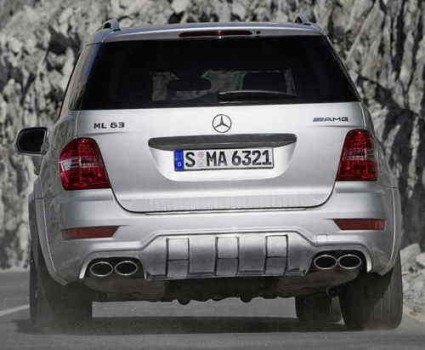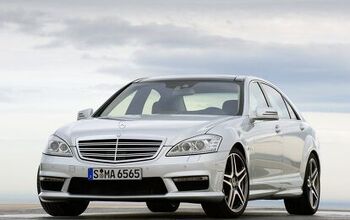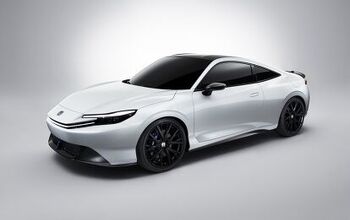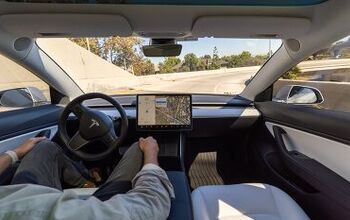4 Views
Mercedes Flunks CAFE
by
Edward Niedermeyer
(IC: employee)
Published: January 7th, 2009
Share
Mercedes failed to meet US-market CAFE standards in 2008 and paid a $28.9m fine in December for it, reports the Freep. VW also paid the NHTSA a fine of $4.5m in August for light truck violations, while Porsche paid $1.2m and Ferrari coughed up a $1.1m to flout CAFE through 2008. But the Mercedes fine, which came to light in a recently-released NHTSA document, is the second largest in CAFE history. DaimlerChrysler AG remains the king of CAFE failure, having paid a record $30.3m in eco-indulgences for its 2006 imported product line. Which consisted primarily of of Mercedes models. Is it any wonder then that, as Bertel noted just a few days ago, Daimler is catching the hybrid fever?
Edward Niedermeyer
More by Edward Niedermeyer
Published January 7th, 2009 6:14 PM


































Comments
Join the conversation
Good!
Ferrari could probably save money by giving each purchaser a Fiat 500.
Corporations don't pay fines or income taxes. Consumers do.
Chevelle, Or, the owners/stockholders do if they can't pass the cost along. So, MB passed along the cost of CAFE, but GM, Ford, and Chrysler owners paid. Unintentionally, CAFE set up a system of redistribution where people buying inexpensive domestic cars were being subsidized by people buying higher end domestic cars. Given the price to create a money loser like most high mileage domestics, MB took the fine and likely made the correct decision. The domestics can't change their plan due to labor laws and contracts, or they would likely do the same, and the price of a new, low end car, would rise to it's proper level. After the government figures out that it makes no sense to bleed the domestics while giving them plasma, what will they do next? Will they ever figure out TINSTAAFL? Once again, do the math. If you doubled the fuel tax, and poorer drivers bought less cheaply made low end cars, and instead bought safer, better made, used high end cars, they would be spending LESS money per mile, the treasury would be getting more money, and there would be more incentive for buyers who drive the most miles to buy more efficient cars and ACTUALLY increase the fleet mileage. Or, continue what we are doing, it works so well.